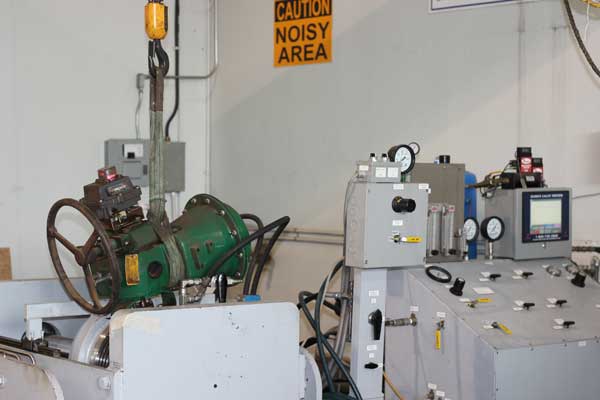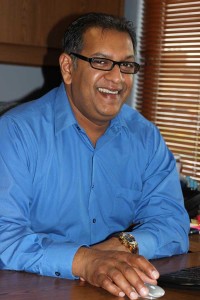Improving plant operations and optimizing process
Process Management Limited is a leading provider of process automation, instrumentation and asset reliability solutions for the oil and gas, petrochemical, refining and utility industries, which are supported through capabilities that include technical sales, engineering and aftermarket services.
The company is the local business partner for Emerson Process Management, with responsibility for the countries of Trinidad and Tobago, Barbados, Guyana and Suriname.
Through the relationship with Emerson, it is able to bring the latest technologies to customers to improve their plant operations and optimize their process.
“The intention was to provide strong technical capability as well as aftermarket services for the many products and solutions that Emerson offer ,” said Henry Singh, who’s been sales/business development manager for Process Management Ltd. since 2005, some years after the Trinidad-based business was created. “The intention from our owners when we started back in 1996, was also to change the whole industrial sales channel landscape by offering more of a consultancy-type approach.”
Emerson itself was founded in 1890 in St. Louis, Mo., as a manufacturer of electric motors and fans and has since grown into a global technology solutions powerhouse. It reported a global revenue of $24.5 billion in fiscal 2014 and does business in more than 150 countries under five corporate brand platforms – Emerson Process Management, Emerson Industrial Automation, Emerson Network Power, Emerson Climate Technologies and Emerson Commercial & Residential Solutions.
Approximately 150 of the company’s 220 manufacturing locations are outside the United States, international destination sales totaled $14.2 billion in 2014 – 58 percent of the company’s sales – and Emerson employees were awarded more than 1,900 patents worldwide.
“A large part of our success has been collaborating with Emerson,” Singh said.
“They support the local business partners and they do provide a lot of training. It’s an investment in our people as well as support and collaboration. Globally, they’ve seen challenges and they’ve adapted, and they make sure their local partners adapt as well. We’re very well steered to handle any future development or any changes.”
The Trinidadian operation has a permanent workforce of 109, Singh said, though the employee number can spike to as high as 140 or 150 with temporary hires during plant turnarounds. The local footprint consists of a single facility in Trinidad, though the business is also charged with handling customers in Barbados, Suriname, Guyana and French Guiana.
Roughly 96 percent of business is done with Trinidadian customers, Singh said, primarily because the industrial sector is “much more developed” than the others in the region. The primary revenue drivers, he said, stem from relationships built within the oil/gas and petrochemical industries.
“We deal with all industries,” he said.
“And they all have different models, different structures and different systems in terms of how they’re organized. Sometimes you’re dealing with an oil and gas customer, whose focus is reliability. They want to make sure whatever they install is reliable and doesn’t cause any incidents. You may have another customer in petrochemical who wants to maximize their throughput. So we have asset management systems which provide predictive type intelligence so you can prepare for an incident or prevent an incident. All the petrochemical plants here use our control valves.”
Though Singh conceded Process Management is not free from competition in the region, he said the company’s tie-in with Emerson – particularly because of that operation’s fully-developed global sales channels – provides a unique collaborative advantage.
“We’re not treated like a distributor,” he said.
“We work together and we go after solutions together. It’s a more flexible approach, I suspect, and we work well with the customers. A lot of our competitors carry multiple brands but they don’t have the full solution line that we have from a single partner. And another way we differentiate ourselves is that we do a lot of investment in our people in training.”
Toward that end, the company officially became STOW certified in 2013, adhering to a program begun by the Energy Chamber of Trinidad and Tobago after a series of complaints from members in the energy sector who were experiencing challenges in meeting the range of health, safety and environmental requirements among the major oil and gas operating companies.
According to the chamber, the program’s most obvious benefit is the increased opportunity for contractors to get more work in the energy sector. The ability of contractors to demonstrate that they govern their businesses according to industry best practices gives the major upstream and downstream operating companies confidence that the industry’s inherent risk will be effectively managed.
Singh said the strict requirements of major clients spurred Process Management to develop competencies and standards that are not yet available in Trinidad, but still meet those available in developed countries. Key areas include Fisher Approved Service Provider (FASP) facility, Scottish Vocational Qualified (SVQ) measurement technicians, Emerson-certified training capability, control systems engineering and construction capability, and ISO-certified vibration technicians and analysts.
“We believe that always striving to positively differentiate our services gives our customers the leading edge and can only redound to the benefit of all stakeholders,” he said. “Our people that support these different strategic agendas are truly dedicated professionals that strive for excellence in what they do and provide valuable input into the continuous improvement of their respective divisions.”
Going forward, Singh said the foundation has been laid for a period of tangible growth.
“We want to be able to collaborate a little better and plan a little better,” he said.
“The way we see it is that we provide a niche service and we want to get into long-term contracts. Rather than planning a job in two weeks, we want to spend eight to 10 months planning with a customer, so, as a result, their spending is optimal and our services are optimal. We’re going to use our predictive diagnostic capabilities so we can better plan the outages and the projects that they have.”
AT A GLANCE
WHO: Process Management Ltd. WHAT: Provider of process automation, instrumentation and asset reliability solutions to the oil and gas, petrochemical, refining and utility industries WHERE: Corporate headquarters in Point Lisas, Trinidad and Tobago WEBSITE: pml.pml.co.tt


